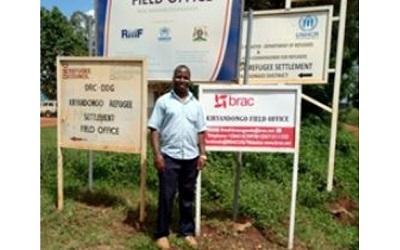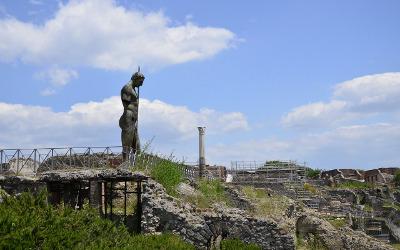You are here
- Home
- Year of Mygration
- Day 215, Year of #Mygration: The Role of Refugees in Development Management: Are Refugees a Burden or a Blessing? A View From Uganda
Day 215, Year of #Mygration: The Role of Refugees in Development Management: Are Refugees a Burden or a Blessing? A View From Uganda

Today’s post comes from Robert Mpiira, BRAC International’s Country Research Coordinator in Uganda, and current Commonwealth Scholarship student studying for an MSc in Development Management with The Open University.
I have been with BRAC for almost four years. Before this, the majority of my career was spent in the corporate sector, so the move into development has been relatively recent. I started the MSc in Development Management with The Open University in October 2017 and I’ve really been enjoying the journey. Besides teaching me about the key debates and issues in the world of development, the course content is very practical meaning the teaching is easily relatable to my day-to-day work. Tutors and schoolmates are also incredibly supportive. One of the greatest – and most humbling – lessons that I have learnt so far is that the stakeholders we generally perceive to be the least important in decision making tend to determine the success (and sustainability) of any development intervention.
Working with BRAC, my exposure to refugees and the worryingly negative perception towards them that pervades the global media intrigues me and got me wondering – are they a burden or a blessing? This question fits perfectly with my studies that teach development, and development management, as being contested, complex, diverse and a discovery.
So, are refugees a burden or a blessing?
This perhaps is a provocative question, which from whatever your viewpoint will prompt plenty of thought. No one would wish to forcefully leave their family and homeland swapping familiarity, even when life is hard, for another country where access to resources and livelihoods is uncertain and your entire environment alien. In fact, when we think about refugees, the first thing that probably crosses our mind is a life of extreme hardship, exacerbated by the overburdened hosting country’s struggling to provide services and resources to help maintain even a basic standard of living. While much of this can be true, rarely do we stand back to reflect on the contribution of refugees to the host country’s social and economic development.
According to the United Nations High Commission for Refugees report (2018) on refugee trends, the year 2017 registered the highest number of refugees in the world’s history with over 68.5 million refugees. Yet, many countries have been reluctant to host refugees. Even where they have done so it can be marginal, with refugees being subjected to stringent policies that incite discrimination in various forms. Common reasons for the reluctance of states to accept refugees typically centres on them either further straining already debilitated economies or introducing security concerns such as the increased risk of terrorism. Uganda, however, is often seen as bucking this trend and, indeed, is hailed as having some of the best refugee policies worldwide.
In March 2018, Uganda had 1,444,873 refugees of whom over one million are South Sudanese. All refugees are given a small plot of land, equal employment opportunities alongside nationals, and access to public services. Differently said, policies focus on the integration of the refugees. A wider question around this approach, however, is how refugees can be integrated so as to contribute to development?
Development and development management is characterized by complexity in the form of many different actors operating at all levels from international to local; diversity and difference, with these actors having varying, and often conflicting values, interests and goals and; an emergent nature as outcomes can be anticipated but never truly known in advance. Despite this varied and complex nature, as practitioners, we are frequently obliged to simplify our work when conducting interventions that often assume that refugees are a homogeneous group. While you can find many commonalities within, and across, various refugee communities, the tendency is to overlook such diversity. Difference in values, cultures and socio-economic status, which are important considerations when planning effective development management interventions, are ignored. However, the diversity and complexity that exists within the oft-applied umbrella term 'refugee' needs continuous challenge, discovery and learning as we intervene.
Health provision for refugees in Uganda provides a good example to highlight why it is vital to embrace these important dimensions of development management. Healthcare services for refugees are provided by a combination of the Ugandan government and international/national NGOs and, in many settlements, services are shared with the surrounding local communities. However, one of the key development challenges currently facing the country is a shortage of qualified health professions – doctors, nurses and midwives. With this shortage preventing the government from providing adequate care to native Ugandans, it is easy to see how arguments might start to emerge for restricting refugee numbers and their access to health care services. Yet, in Kiryandongo refugee settlement in northern Uganda, there are many qualified nurses and midwives among the South Sudanese but they are not permitted to practice because they are trained in a different curriculum from Uganda. In addition, retraining and getting a license to practice is an expensive and lengthy process. They are a massively untapped resource.
How sustainable and contextually relevant then is the current healthcare model in Uganda if key beneficiary groups are not meainginfully involved? Integrating these South Sudanese medical personnel would reduce staff shortage, cultural and communication barriers, involve the refugees in finding and owning sustainable solutions to their challenges, and improve their livelihoods through employment. Expectant mothers feel uncomfortable having male translators in labour wards, for example. The idea of involving refugees in development management is already recognized by the education sector where refugee teachers are being trained or recruited to offer services in the refugee population.
In Kiryandongo refugee settlement in northern Uganda, there are many qualified nurses and midwives among the South Sudanese but they are not permitted to practice because they are trained in a different curriculum from Uganda. In addition, retraining and getting a license to practice is an expensive and lengthy process. They are a massively untapped resource.
Turning back to our question - do refugees increase the burden on a country’s strained resources? Based on my own experience, there is no straightforward answer. I have seen how the presence of refugees has led to improvements in health services through better government provision in conjunction with partners - a centre in Panyadoli being upgraded from a III status to IV, meaning dedicated doctors stationed permanently there, for example. As a result, host communities also clearly benefited from a better resourced and equipped centre, despite having to walk long distances to reach it. There remains though, at this particular centre, a severe shortage of medicines as the government budget for refugee settlement health centers are separate from the national health budget. Total allocation is based on the number of refugees and does not include the host population, despite these centres serving both communities. Recognising that healthcare in districts that have settlements are going to be overstrained because of doubling provision is not rocket science. Better development management, in this case then, could come through joint budgeting in districts where there are settlements, but also allowing highly skilled health professional refugees to apply their training and gain employment would relieve some of this taxation on overstretched service delivery.
Development actors ranging from UNHCR to Community Based Organisations, myself included, are in employment because of refugees. Additionally, refugees establish businesses creating employment for the local population and contributed to the national economy through taxes and skills development. In Uganda, Somali refugees own petrol stations and high-brand restaurants like the popular Café Javas chain which are part of Mandera group. Moreover, remittances sent to refugees from relatives in high-income countries have boosted Uganda’s foreign reserves. This shows refugees can play an active role in development management.
So, should we ignore the development challenges associated with refugees? Certainly not, but we should remember that refugees are not a homogenous population. The general perception that ‘all refugees’ are a drain undermines the sustainability of our interventions, interactions and discovery towards progressive development. While the experiences I have related may appear as isolated cases, plenty of them will be discovered if only we explore more as we appreciate the complexity, difference and emergence of development management.
Quarterly Review of Research
Read our Quarterly Review of Research to learn about our latest quality academic output.

Contact our news team
For all out of hours enquiries, please telephone +44 (0)7901 515891
